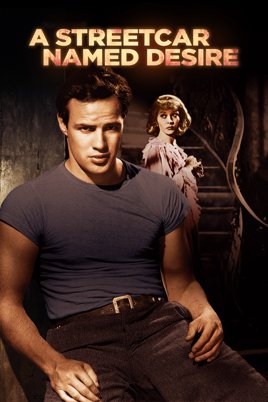Book #36: A Streetcar
Named Desire by Tennessee Williams
Reading a
book in preparation of teaching it is a lot different from reading a book for
the pleasure of doing so. I read A
Streetcar Named Desire last fall because I was teaching it to my AP
Literature students. I felt a little guilty for never reading it before
(somehow I never had to read it in high school or college) and reading it for
the first time right before I planned on teaching it. Sometimes as a teacher, I
feel like I need to be an expert on what I teach, or at least pretend to me. My
students expect me to know the answers for everything, every definition of EVERY
SINGLE word (like I am a walking dictionary), and to tell them there is an
exact way to analyze literature. They struggle to understand that there is not
always one concrete answer when it comes to analyzing a text, but there sure as
hell can be a wrong answer. It frustrates them to no end. So when I go into a
book with the intention of teaching it, I have to anticipate what my students
will think, question, and argue about (this group loves to argue about
EVERYTHING!). So Streetcar is an
entertaining play and I enjoyed reading it, but reading it with the intention
of teaching it took a little bit of the fun out of it for me.
 |
| Even though Stanley is a jerk, Marlon Brando is quite hot. |
Many people
think of the Marlon Brando film version of A
Streetcar Named Desire where he shouts “Stella!” at the top of his lungs
from the New Orleans’ streets. This scene is referenced several times
throughout the series, and is a staple of pop culture. However, Lane refers to
Rory as another one of the play’s characters in this exchange. “Rory: He’s not my boyfriend. Lane: Really? Rory: No. Lane: What is
he then? Rory: He’s my…gentleman
caller. Lane: OK, Blanche.” For the
purpose of this post, we are going to assume that Lane is referring to Blanche
from A Streetcar Named Desire and not
from Golden Girls (that would be a
different post entirely).
A Streetcar Named Desire follows the
characters of Blanche, Stella, and Stanley in the French Quarters of New
Orleans. Blanche, Stella’s sister, shows up at Stella and Stanley’s doorstep
and immediately makes herself at home. At the onset of the play, Blanche is
extremely unlikable. She crafts a web of lies and is purposely condescending to
Stella and her husband to mask her insecurities around her own life. You see,
Blanche lost her family home (Belle Reve) because she has been careless with
money and lost her job as a teacher due to inappropriate relations with a
student. It is also later revealed that Blanche stayed at a hotel with links to
prostitution and revealed her husband’s homosexuality, leading to his suicide.
Blanche does not reveal any of this to her sister, though. She acts like Stella
and Stanley’s apartment is too small for her and that Stanley, himself, isn’t
high enough quality for Stella. She almost thinks that by acting in this way
and pretending that these events never happened, that they never did. She casts
a false light upon herself (hence the lampshade motif – my students will know
what that means).
The other
characters in the play, however, are not much better. Stanley is abusive
towards Stella fairly early on in the play. He belittles her and constantly
screams at her (STELLA). Stella doesn't seem to have a problem with this. She
has accepted her place in their relationship, and complies with Stanley’s
whims. It is frustrating that Stella can’t stand up for herself. Blanche can,
though. She has no problem calling Stanley out and challenging him. But if you
are familiar with the play, you know that it does her no good in the end.
The
majority of my students missed what exactly happened at the climatic scene
between Blanche and Stanley at the end. The action is not explicitly stated,
but inferred. This lead to a lot of frustration from my students (“What do you
mean he did that? If it doesn’t say it happened, you can’t prove it?! So does this mean I can argue that something
else happened if I can infer it?!”). I won’t reveal the ending here, but I will
warn that it is a sensitive topic.
A Streetcar Named Desire is a quick and
easy read on the surface level, but reveals much about character motivations
and desires. Heck, I read about 22 AP Lit essays just on the topic. I wonder
what Rory would have written?
Movie Poster - https://is2-ssl.mzstatic.com/image/thumb/Video69/v4/81/fc/4c/81fc4c96-f620-6b1b-5fca-16d2f361617b/pr_source.lsr/268x0w.png